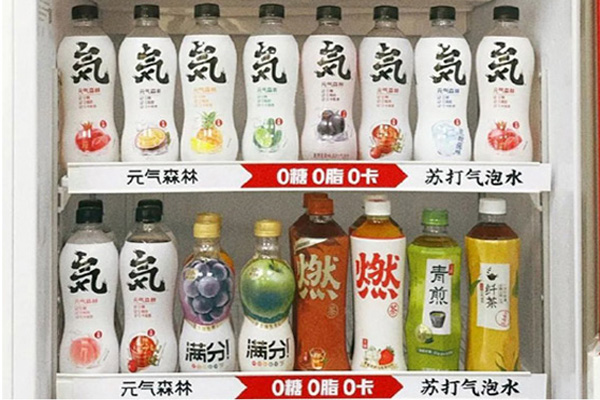Der Unterschied zwischen Convenience-Store-Regalen und Supermarktregalen
Jul 31 , 2025Supermärkte legen Wert auf große Kapazitäten und stopfen so viele Produkte wie möglich in die Regale. Um mehr Artikel auf begrenztem Raum unterzubringen, werden die Regale oft größer. Convenience-Store-Regale hingegen zeichnen sich durch ihre Kompaktheit und Eleganz aus.
Beispielsweise sind die üblicherweise in Convenience Stores verwendeten Mittelinselregale im Allgemeinen 900 mm breit, während die Breite von Supermarktregalen mindestens einen Meter betragen muss. Die Höhe von Wandregalen in Convenience Stores beträgt im Allgemeinen 2 Meter oder 2,2 Meter, Supermarktregale sind jedoch im Allgemeinen über 2,4 Meter hoch und können als kleines Lager zur Unterbringung häufig verwendeter Waren verwendet werden, sodass das Personal die Bestände jederzeit bequem auffüllen kann.
Aus gestalterischer Sicht sind die Regale von Convenience Stores in der Regel raffinierter.
Jeder, der schon einmal in einem Convenience Store gearbeitet hat, weiß, dass ein Convenience Store kein Mini-Supermarkt ist. Vielmehr verdichtet er die Essenz eines Supermarkts und eliminiert den oft umständlichen Einkaufsprozess, wodurch dieser schneller und bequemer wird. Convenience Stores ähneln daher eher Boutiquen, und ihre Regale sind daher in der Regel eleganter und stilvoller gestaltet.
Im Vergleich zu kleinen Convenience Stores bieten Supermärkte eine größere Produktvielfalt und -menge. Hier können alle lebensnotwendigen und nicht-lebensnotwendigen Produkte gleichzeitig gekauft werden. Convenience Stores werden jedoch von Faktoren wie der Größe der Fläche und den Konsumgewohnheiten der Bevölkerung beeinflusst, sodass die Produktvielfalt relativ gering ist und der Schwerpunkt auf lebensnotwendigen Gütern und Lebensmitteln liegt.
